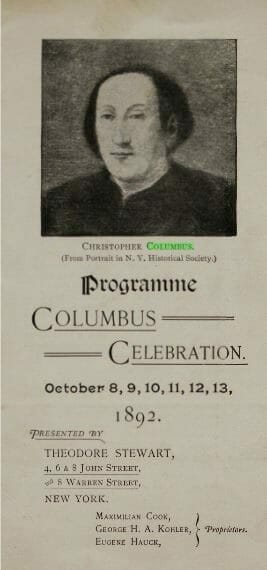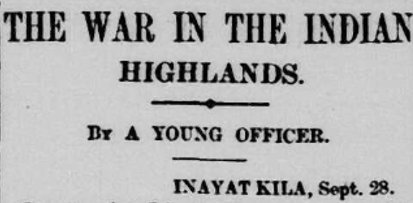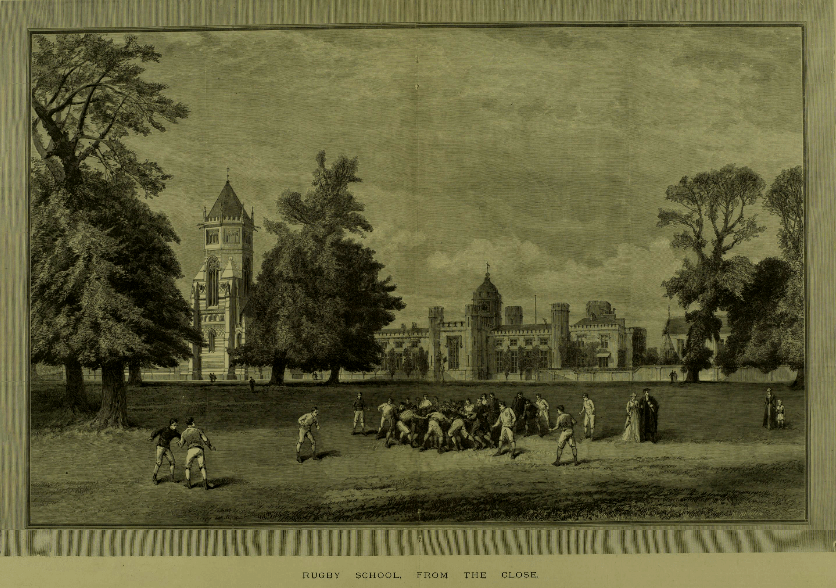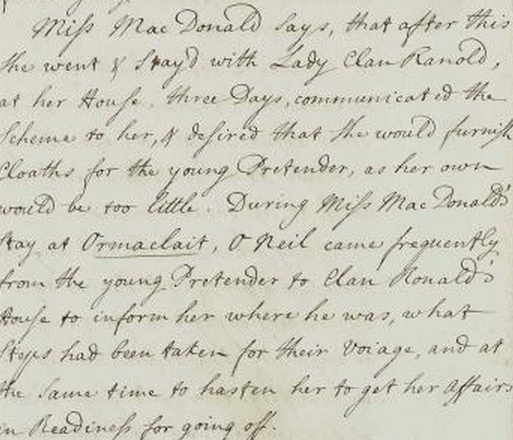Working for a US-based company like Gale, a part of Cengage Learning, it is hard to escape the fanfare of nationwide ‘federal holidays’. Far more interesting – and, seemingly, more commonplace – than the various ‘bank holidays’ we have here in the UK, the US recognises eight official federal holidays. Yet when I noticed that Columbus Day was pencilled in on my email calendar for 10th October 2016, I was surprised to learn that it was not, in fact, considered one of those eight holidays. In 2013, just 24 states observed the holiday. A mark of the re-evaluation of Columbus’s influence upon America and, for many, the effects upon indigenous ways of life, Columbus Day is today a far more contested occasion than it once might have been. With January marking 524 years since Columbus was granted the funds to finally embark upon his first voyage, I was spurred to delve into Gale’s digital archival collections to see if I could detect a change in mood towards Columbus Day observance.
Daniel Pullin
Tales for the ‘Every-day Reader’: Winston Churchill and the ‘War in the Indian Highlands’
When the name ‘Winston Churchill’ is mentioned, images of a heroic war leader with cigar in mouth and face set in steely determination are usually the first to come to mind. His wartime speeches became iconic in symbolising gung-ho British determination to battle on through endless bloodshed, helping steer Britain through the turmoil of a cataclysmic conflict. Yet, with perhaps less well-known flair, the former Prime Minister proved equally adept on paper. This is evident in his first published material: a series of war letters commissioned for British newspaper The Daily Telegraph.
The ‘Father of Rugby Football?’ William Webb Ellis and the Rugby World Cup
The sight of hordes of excited, expectant people checking in to Britain’s hotels this month can mean only one thing – not the lure of a discounted late-summer trip to the seaside – but the start of the eighth Rugby Union World Cup. The beginning of the event on 18th September marked the second time that the UK has hosted the competition. Public interest is reaching fever pitch as we sit glued to our TVs, agonisingly hoping for another Jonny Wilkinson-inspired moment. The victorious nation will crown their achievement by lifting the William Webb Ellis Cup at Twickenham on 31 October. But just who was William Webb Ellis?
With access to millions of pages of digital archival material here at Gale, a part of Cengage Learning, I decided to dig a little deeper into the legend which surrounds the man…
Bonnie Prince Charlie and ‘the ‘45’
In August 1745, Prince Charles Edward Stuart’s Highland army embarked on its journey across Scotland, marking the onset of the 1745 Jacobite Rising. Determined to restore the Stuart monarchy to the throne, and severe the Union of 1707 which bound Scotland to Britain, the Prince led his Jacobite followers into battles across Scotland and the North of England. Replete with themes of individual heroism, and of the struggle of the few against the tyranny of the establishment, it is little wonder that the story of ‘Bonnie Prince Charlie’ has come to acquire mythical status. 270 years on from what was effectively the beginning of the end of the Jacobite cause, I couldn’t resist delving into some of the original documents from our State Papers Online: Eighteenth Century resource, which gives us some clues as to why the rising – and the figure at its head – has become so romanticised.




